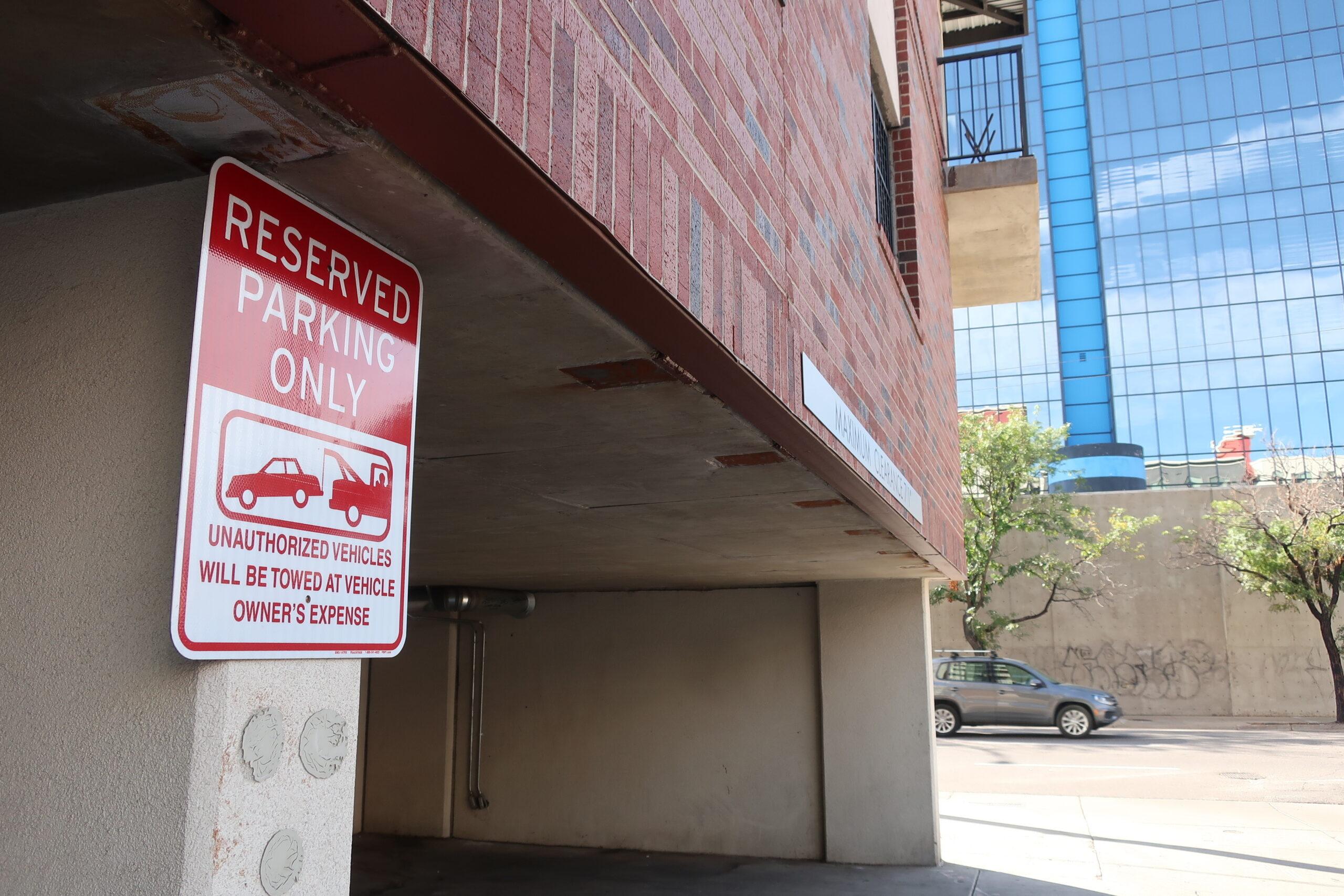
Picture this: You step outside your home to go to your car, but it’s nowhere to be found. The space on the street where you parked it is empty. It’s been towed.
Naturally, you’re upset. And now you owe hundreds of dollars to get it back. That’s the situation many Coloradans find themselves in even after legally parking near their homes.
Towing on residential property has become more common in Colorado. The state’s Public Utilities Commission, which regulates towers, estimates it gets more than 400 such complaints each year, with numbers growing annually.
But a new law that went into effect last August has changed the game when it comes to towing on private property. It’s also caused some confusion among drivers, property owners and even towing companies about when it is still legal to tow.
CPR looked into your questions about towing submitted through our Colorado Wonders project. Here’s what we know so far:
What is this new law, exactly?
The law is called the Towing Bill of Rights. It’s the biggest overhaul in a long time of how our state governs the towing industry. Specifically, we’re talking about rules for when companies can and can’t tow your car from private residential areas.
It passed during last year’s legislative session and went into effect in August 2022.
Does the new law include the parking lots at places like the supermarket or restaurants?
No, the law only covers towing on private residential properties. Think neighborhoods, apartment complexes and mobile home parks. It doesn’t cover towing in parking lots for commercial properties such as restaurants and grocery stores, so your car could still be towed from those locations.
What are some of the new rules for residential areas?
The biggest changes circle around when a company can take your car without your consent.
The law also gives the state more power over permit approvals for Colorado operators and issuing fines against bad actors in the industry.
- Towing companies can’t take your car simply because you have an expired license plate, unless they’re carrying out a police or court order.
- Towing companies must give a 24-hour written notice before removing vehicles located on residential property, with some exceptions. Those include: Court or police orders; Vehicle owner consent; When a vehicle has received two prior notices; Creditor repossessions; When a vehicle is blocking a driveway; If a vehicle is parked illegally in a handicap space; When a vehicle is parked in a fire zone; or Parking without a permit (if required by property).
- Towing companies must release a vehicle at no charge upon request from an owner if still on private property.
- Towing companies must release towed vehicles to owners upon payment of 15% of overall fees, not exceeding $60.
- Towing companies must release the contents on towed vehicles upon request from owners.
Have fewer tows happened because of these new rules?
Towing companies interviewed by CPR say they have scaled back the number of their hauls in the five months since the law took effect.
John Connolly, owner of Arvada-based Connolly Towing, has simply dropped his 380 private residential property customers due to the new law’s requirements. The changes have caused too much confusion among customers, he said.
“There are so many different areas of towing from law enforcement towing to residential and junk haul towing,” he said. “The new laws don’t apply to most areas, but many people think they do.”
Shortly after the law took effect, Connolly decided to focus his business entirely on non-residential tows, he said.
Wyatt’s Towing, the largest residential tower in the Denver Metro area, has seen business drop about 20 percent since last August. That’s mainly because there are more hoops for operators to jump through before making a legal tow, said Trevor Forbes, Wyatt’s president and CEO.
“It’s a bunch of small changes that are adding up,” he said. “A reduction in our revenue also requires less personnel, so we just have less people too.”
There’s limited data on the state number of tows. That picture could improve, though. Going forward, the PUC is now required to provide lawmakers with an annual report on towing complaints each December.
If your car does get wrongly towed, can you get your money back?
It depends on your situation.
The law gives more teeth to state regulators who oversee the towing industry, including an extra $100,000 for the PUC. That money will go toward hiring an additional full-time investigator to look into consumer complaints.
The commission has updated its website to better educate consumers about the new law, including tips for how to submit a complaint. A list of exceptions to the new 24-hour notice rule is also posted there.
If you still think your car has been towed illegally, the PUC suggests filing a complaint through their website with “very specific” details about your situation and why you believe you were illegally towed.
Other details to share include the following:
- What led up to the tow?
- Have you retrieved your vehicle yet?
- Did you park in a lot that required a permit?
CPR has previously reported that complaints can take several days to weeks to resolve.









